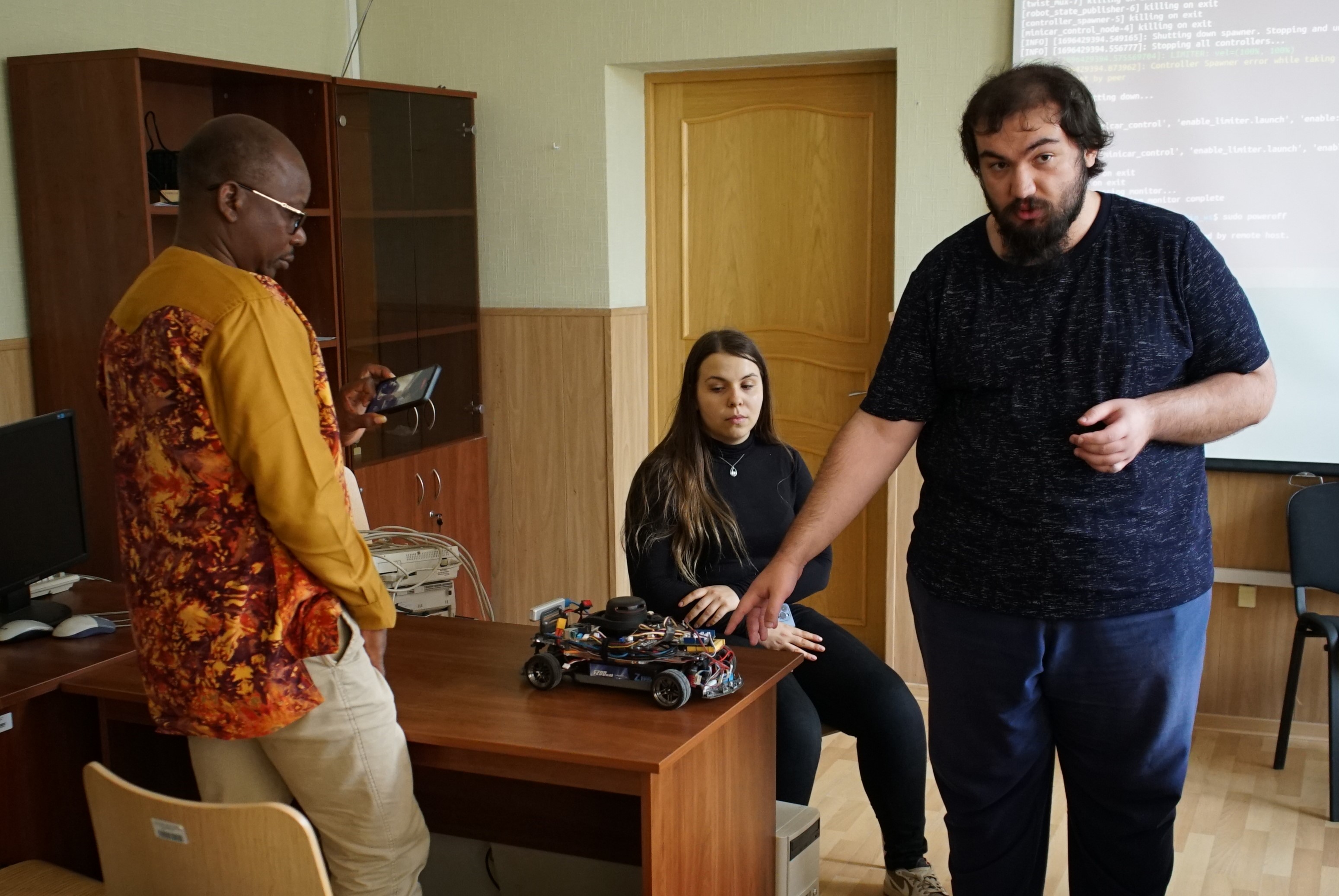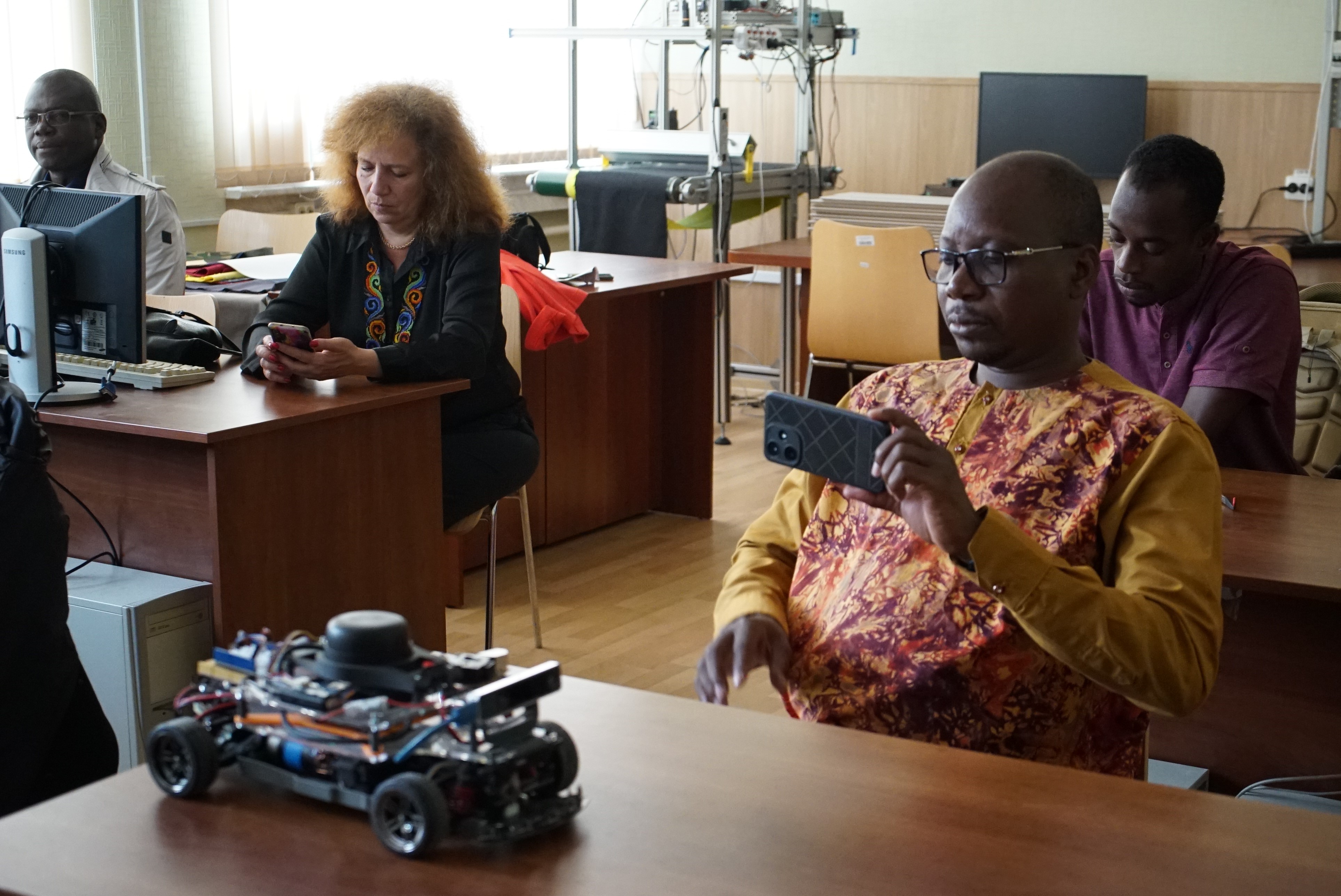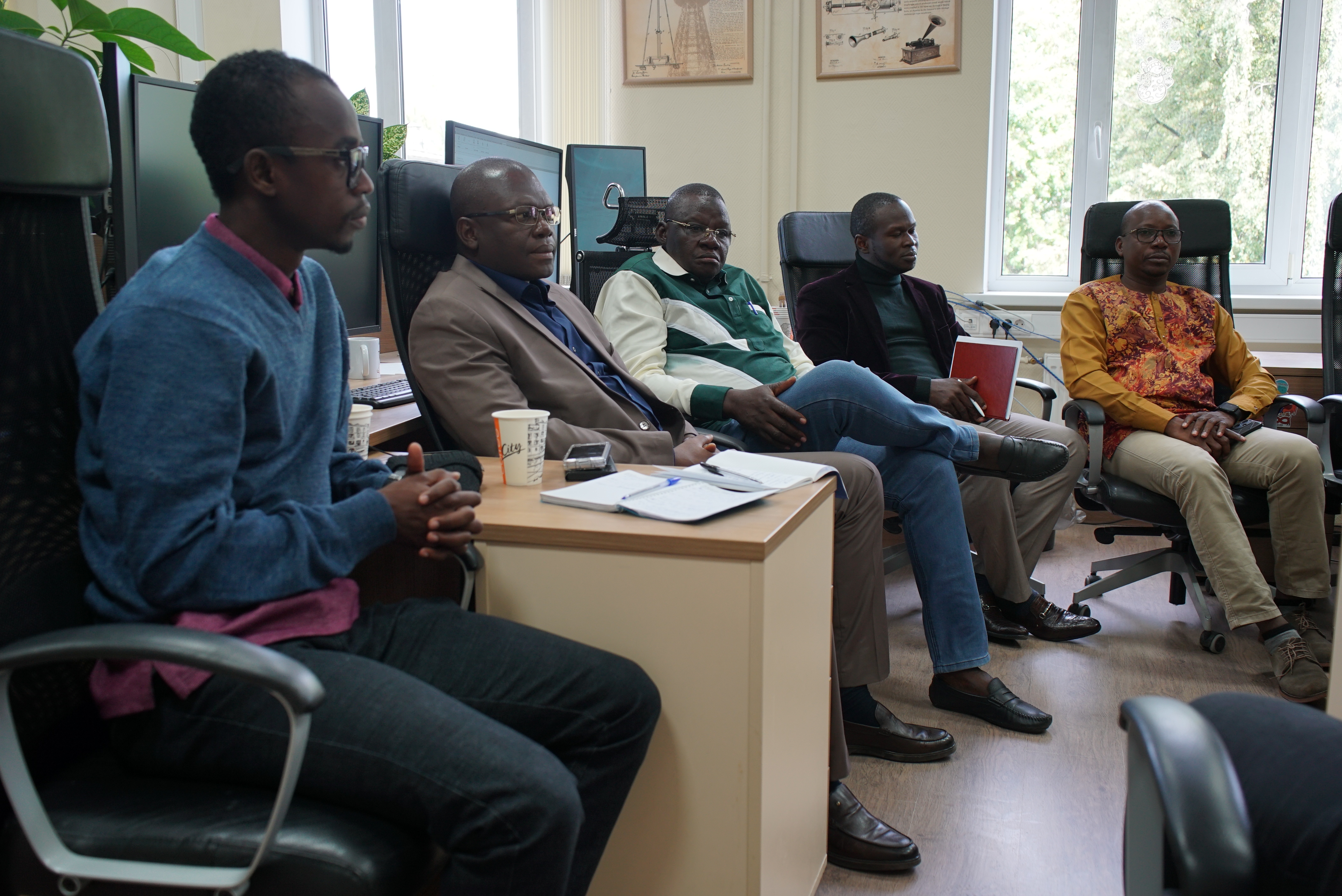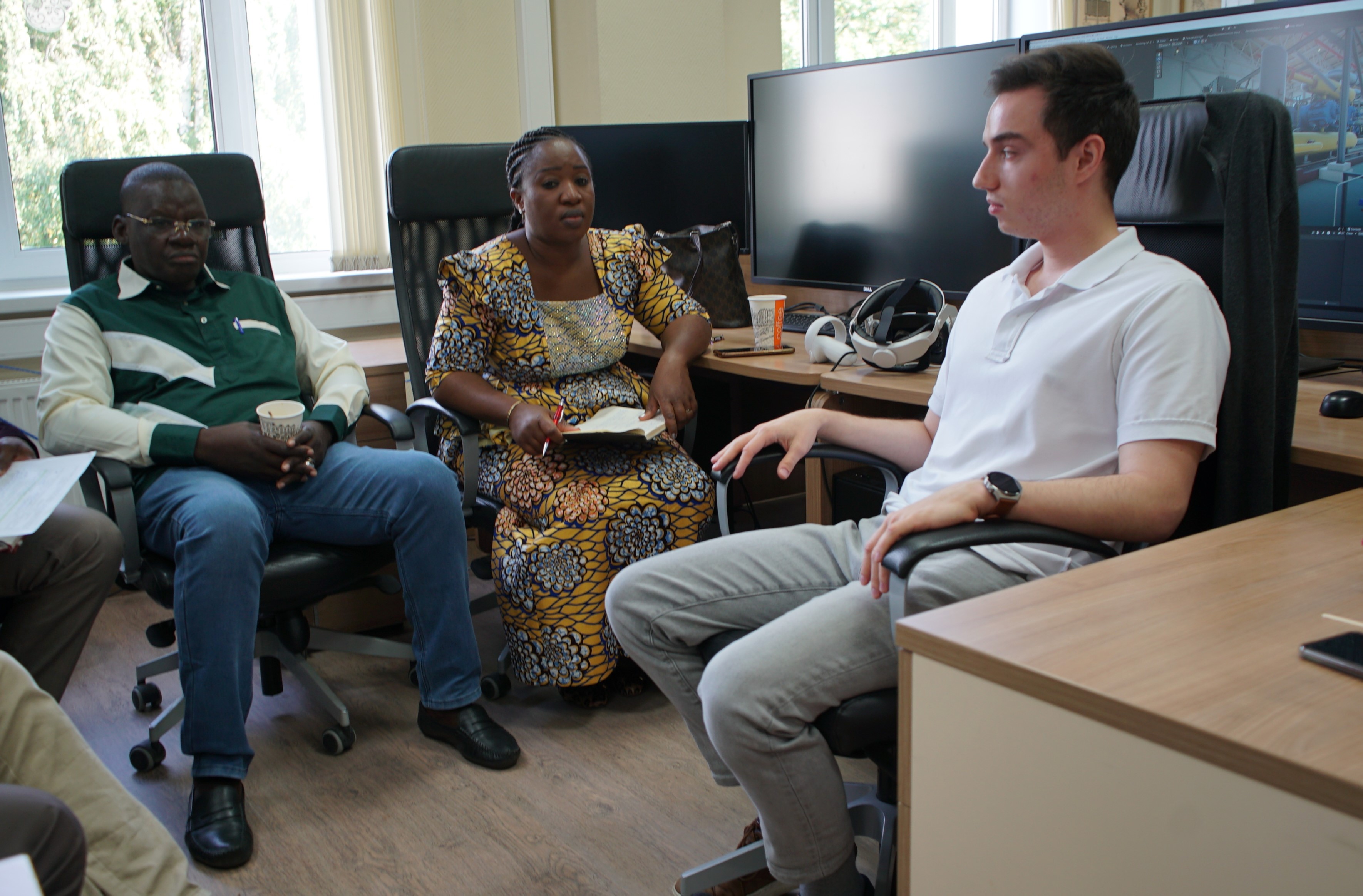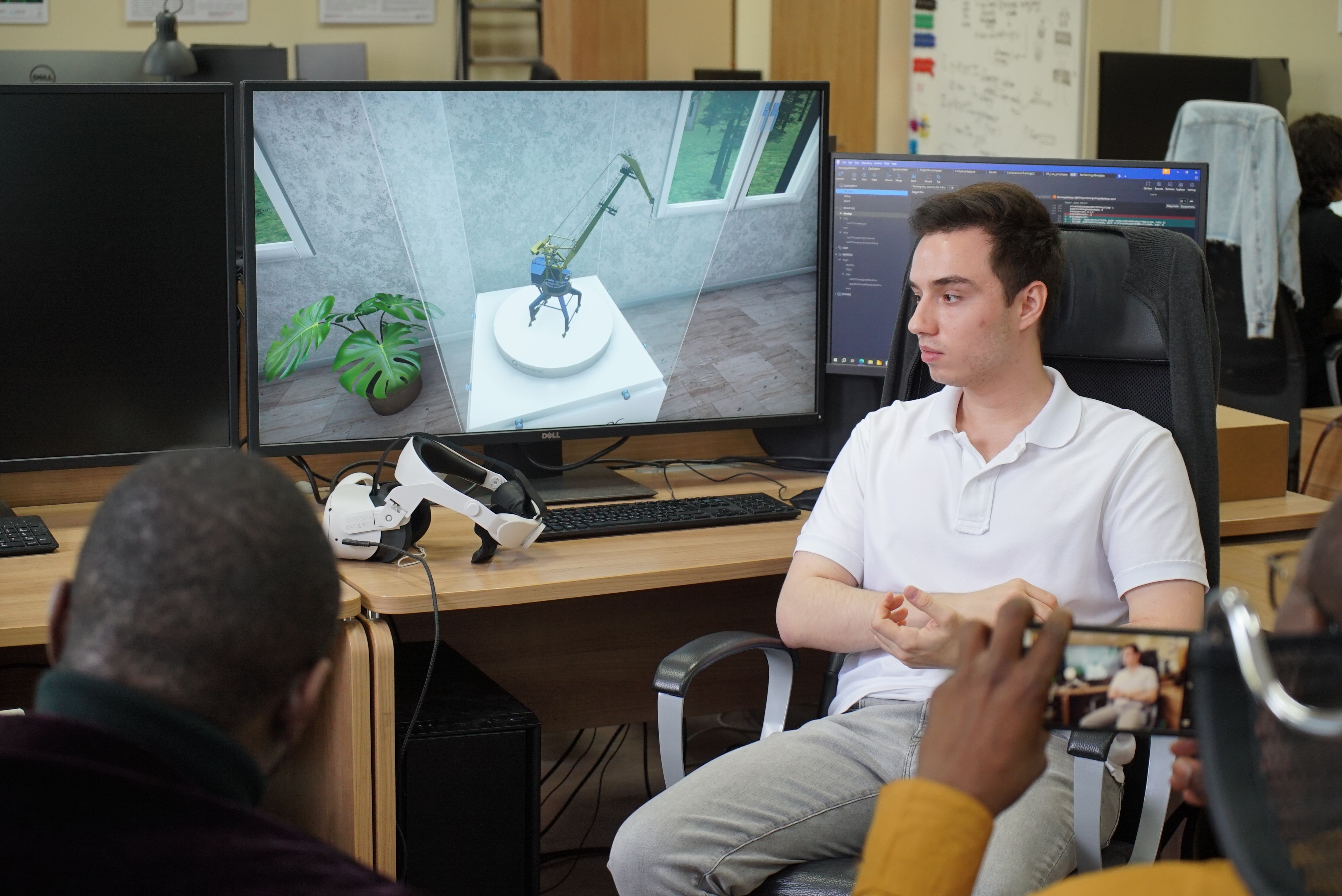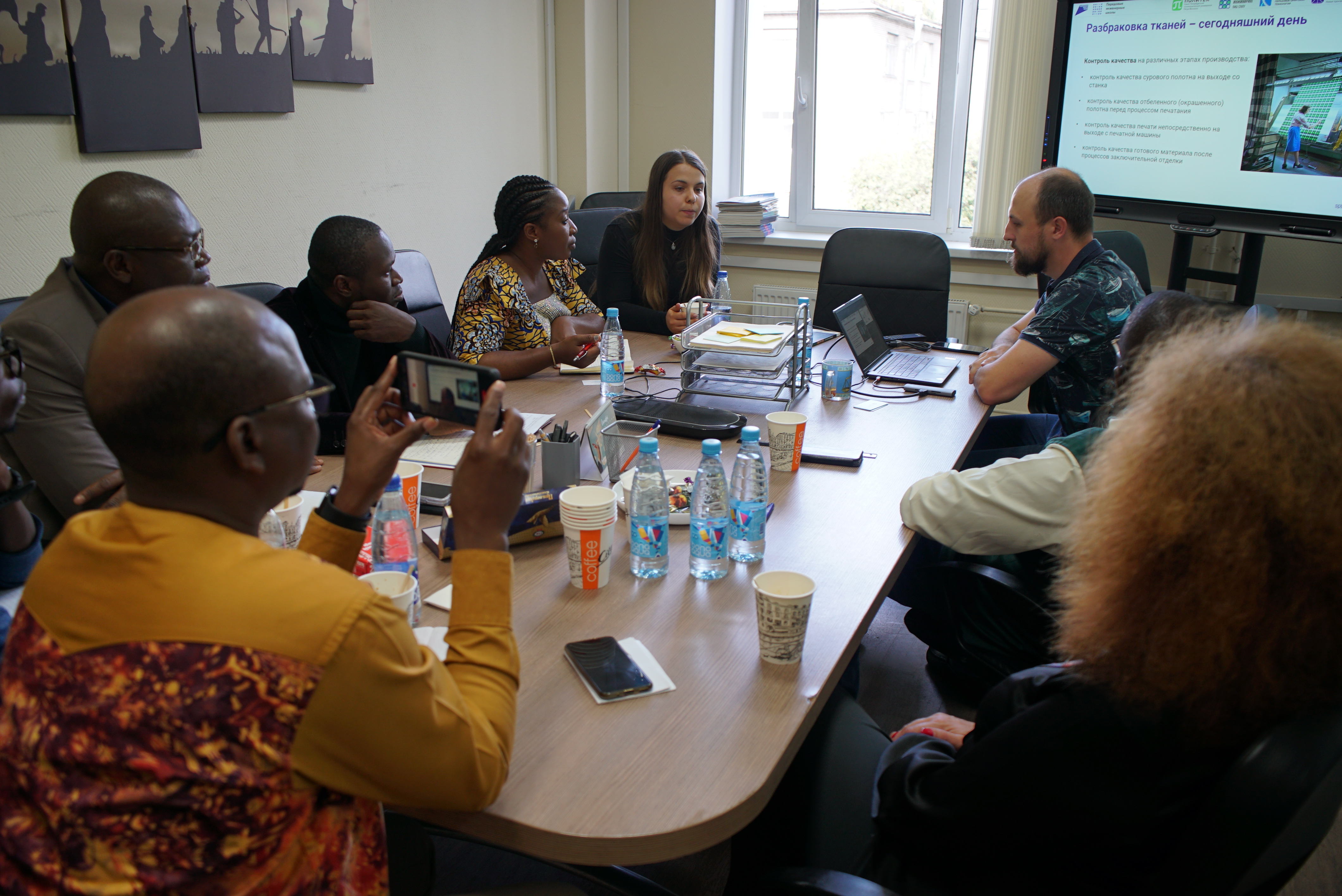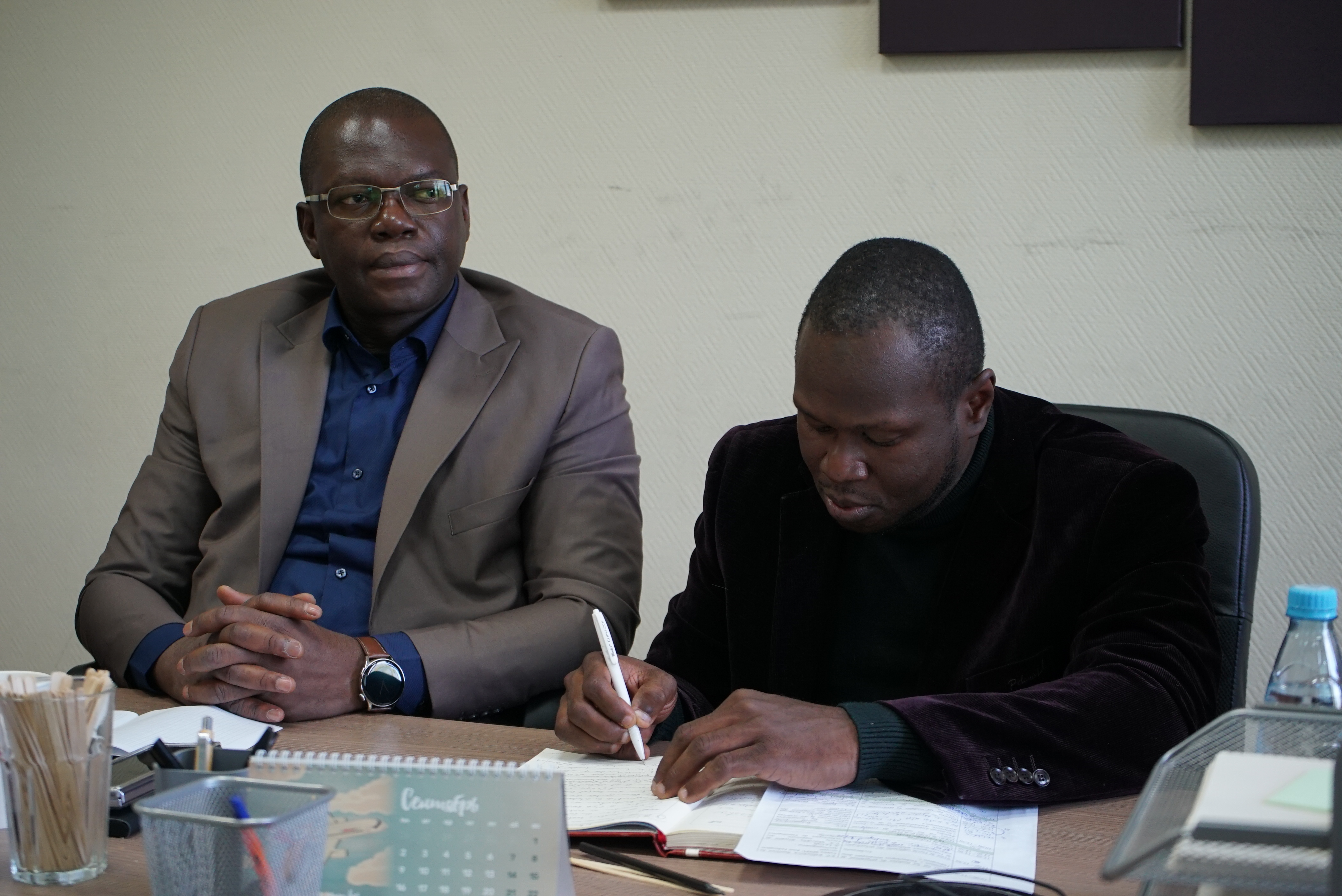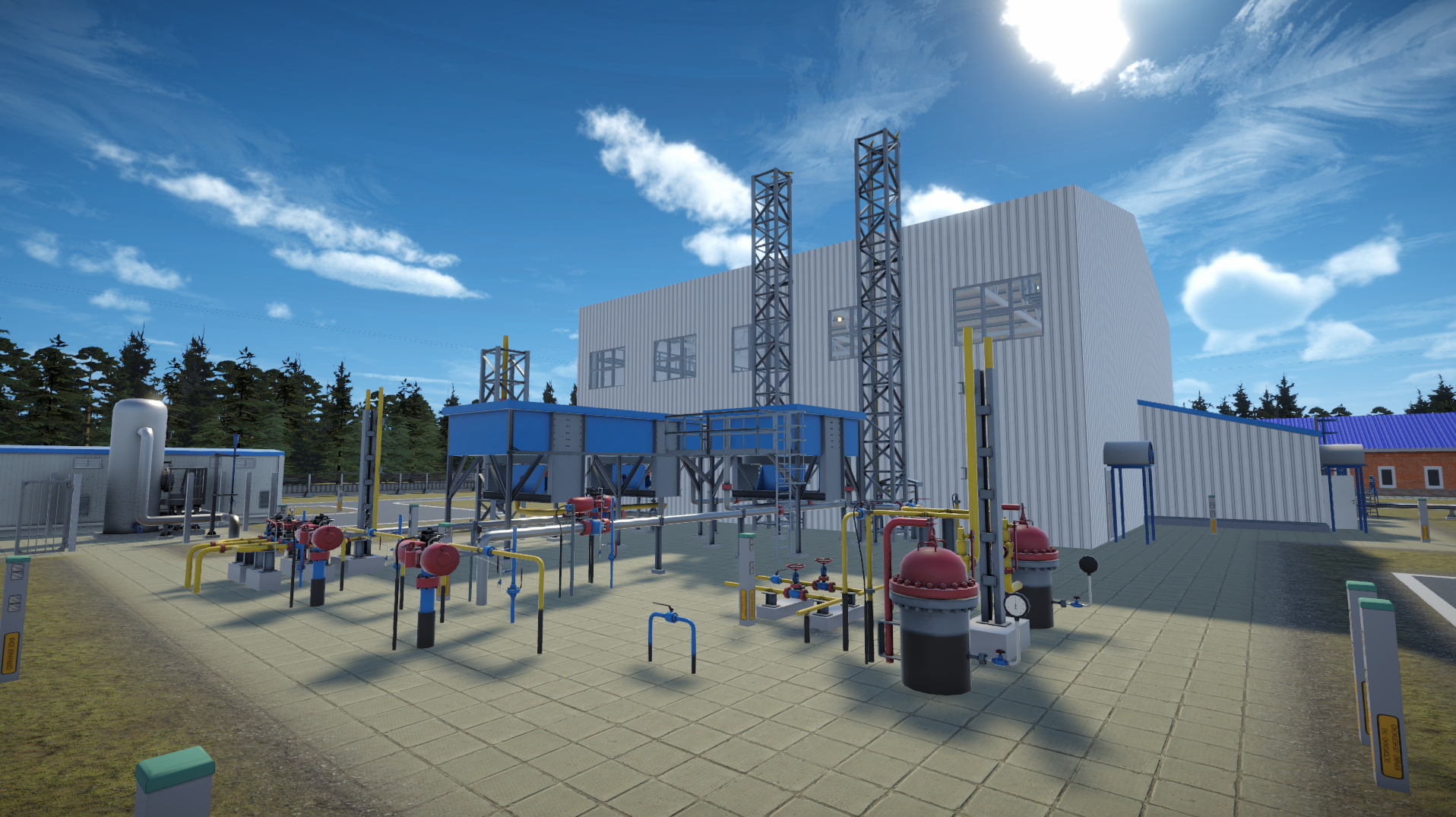A delegation from the National Center for Artificial Intelligence and Robotics of the Republic of Mali visited the ISSDP Laboratory
As part of the RAFU Summer University program, the participants of the delegation had the opportunity to visit the laboratory and gain insight into the team’s research and developments in the fields of vision, machine learning, and virtual reality technologies.
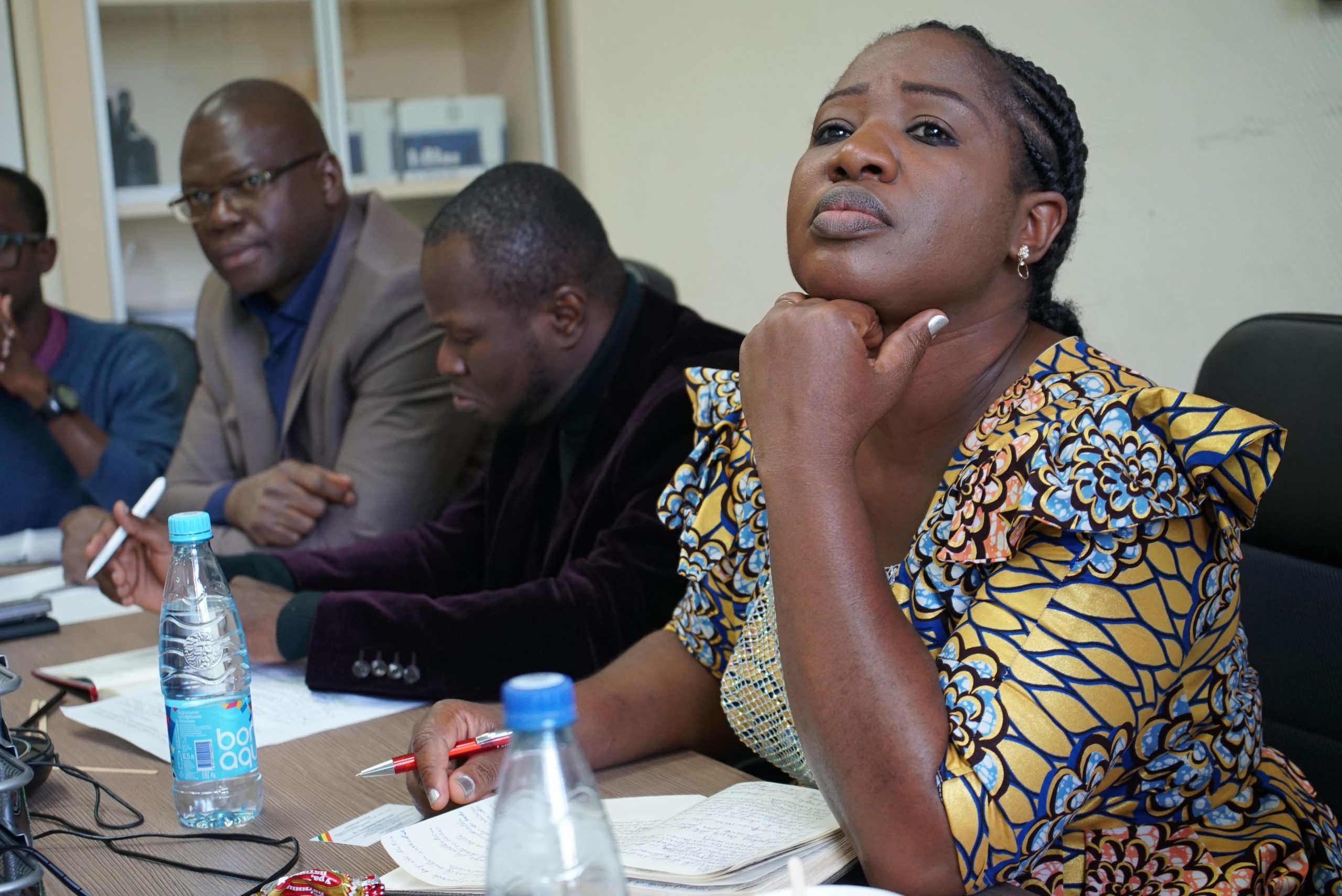
On 16 September, a delegation from the National Center for Artificial Intelligence and Robotics, which is under the auspices of the Ministry of Higher Education and Research of the Republic of Mali, paid a visit to the Polytechnic University.
The delegation was led by Mr. Ousmane Guindo, Technical Adviser of the Center, who is responsible for the organization’s administrative and institutional affairs.
In the current academic year, 19 Russian universities participating in the Russian-African Network University (RAFU) are hosting the RAFU Summer University, a professional development program for African citizens. From 16 to 22 September, representatives of the National Center underwent training in six distinct modules.
The delegation was greeted by Dmitry Arseniev, Vice-Rector for International Activities of SPbPU; Alla Mazina, Secretary of the RAFU Presidium and Deputy Head of the International Cooperation Department of SPbPU; and Issa Togo, Honorary Consul of Mali in St. Petersburg and Associate Professor of the Graduate School of Hydraulic and Power Engineering of SPbPU.
‘We find ourselves at a pivotal moment, standing on the threshold of new opportunities in the field of artificial intelligence and advanced technologies. Our main objective is to provide training for highly qualified personnel who will be able to make a significant contribution to the development of science and technology. It is crucial to emphasize that a deep understanding of higher mathematics provides a solid foundation for future achievements. We are proud that our university hosts robust mathematics departments, which have produced numerous talented engineers and scientists currently working across the globe. Our team is excited to open doors for internships and collaborations with young scientists to drive innovation together,’ Dmitry Arseniev extended a warm welcome to the guests.
Mr. Ousmane Guindo expressed his gratitude for the reception and proceeded to introduce Professor Sogoba Jacqueline Konaté, Head of the National Center for Artificial Intelligence and Robotics.
‘We are pleased to have the opportunity to visit the Polytechnic University, one of Russia’s leading engineering universities. This collaboration is of particular importance to Africa and has been ongoing for decades. Many generations of scientists and researchers have received a Russian education, which has been the foundation of their success. Today, we are seeking to adopt this experience in order to train qualified teaching staff capable of contributing to the development of science and technology in the Republic of Mali. Interaction with the Polytechnic University opens up new opportunities for us, including internships, joint projects, and academic mobility. We believe that we will be able to achieve significant results together,’ said Mr. Ousmane Guindo.
The Summer University program included visits of guests from the Republic of Mali to the departments of the Polytechnic University. On 18 September, they visited the Industrial Systems for Streaming Data Processing Laboratory. The Laboratory staff, comprising developers and project managers, provided a detailed account of the Laboratory’s activities and offered a comprehensive overview of specific projects.
Eduard Dzhuzhuev, an engineer from the ISSDP Laboratory, presented a compact model of an unmanned vehicle. It is a training and demonstration software and hardware system designed for the acquisition of skills in the construction of unmanned autonomous vehicles. The project was conducted in collaboration with the SPbPU Computational Engineering Center (CompMechLab) as part of the educational component of the SPbPU NTI Center program.
The compact device, measuring 40x25cm, showcases the principal software and hardware solutions employed in the construction of ADAS (Advanced Driver Assistance System) systems within the automotive industry.
The device is capable of constructing and navigating terrain maps, identifying the shortest route to a given point on the map, avoiding dynamic obstacles, and recognizing and reacting to the various road signs and attributes. Furthermore, the system offers a comprehensive framework for investigating the technologies employed in the collection, processing, and transmission of information from diverse sensors within information systems.
Alexander Kuptsov, lead programmer, discussed the development of VR training facilities (labs) as part of the Education Quality Improvement and Personnel Training Program for Gazprom PJSC/SPbPU. In accordance with the terms of the contract, the ISSDP Laboratory has developed seven virtual reality systems since 2021. The objective is to enhance the quality of the educational process at SPbPU in areas relevant to Gazprom PJSC at the Institute of Civil Engineering, the Institute of Energy, and the Institute of Machinery, Materials, and Transport of SPbPU.
Alexander presented a comprehensive overview of the 2024 projects, including an interactive digital model of compressor and auxiliary equipment for natural gas injection into underground storage at an underground gas storage station, as well as a digital model of compressor and auxiliary equipment of a vehicle gas filling station. Both solutions are equipped with interactive tools and training programs based on the technological regulations and algorithms of actions of personnel in real facilities.
Junior researcher Alexey Boykov presented his experience of developing a hardware and software system for the automatic detection and classification of fabric defects based on computer vision and artificial intelligence technologies. The solution has been developed with the specific objective of meeting the needs of the textile industry.
The hardware and software system comprises three principal modules: an image capture module, encompassing digital cameras, lenses, and lighting devices; an image processing and storage module; and a synchronization and control module.
The deployment of neural network algorithms for the purpose of defect detection, location, and classification represents a pivotal aspect of the image processing software module. The software implementation employs a deep convolutional neural network for semantic image segmentation.
The developed system detects, classifies defects, and generates an output signal comprising information about them. Consequently, an operator at the production site can promptly respond to a detected defect, ascertain its cause and location of occurrence, and transfer the pertinent information to the production site responsible for addressing the defect.
Source: spbstu.ru
